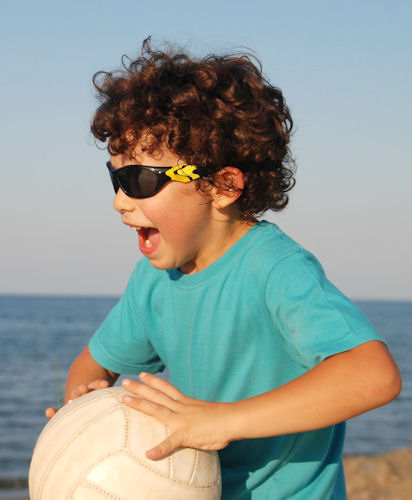ADHD may be confused with vision problems.
An ADHD diagnosis may seem obvious if your child is fidgety, hyperactive, or struggles in school. However, these behaviors could be the result of vision problems.
Some children may be misdiagnosed with ADHD despite the fact that vision issues, such as convergence insufficiency, are the root cause of symptoms.
Connection between ADHD and vision problems
A study in Optometry and Vision Science (2016) discovered that children with vision problems are two times more likely than their peers to be diagnosed with ADHD.
A major problem is that teachers often do not relate poor attention and behavior in the classroom to vision problems.
According to the study, like ADHD, vision problems make it difficult for children to complete schoolwork on time or pay attention.
Vision difficulties, according to some experts, have an impact on children’s “executive function” — the higher-order cognitive processes that help them plan, pay attention, and organize time and place.
When a child’s eyes aren’t working properly, it’s easy to lose focus while reading and struggle to comprehend the text. Words may look blurry and the eyes become strained.
When prompted to read, children with vision problems become uncomfortable or fidgety. Many students act out in class or while doing homework. Their dissatisfaction can result in anxiety and mood disorders.
These behaviors are often attributed to ADHD.
Do vision screenings detect all vision problems?
No.
Vision screenings do not test a child’s functional vision, which is more than ‘20/20’ sight.
Simple vision screenings in school test for ‘20/20’ eyesight using the Snellen vision chart, from which kids read letters or symbols. If a child is found to be highly nearsighted or farsighted, they might fail the vision screening.
SEE RELATED: ADHD and Vision Problems: 2 Important Studies
Schedule an appointment with an eye doctor near you if your child is showing signs of ADHD.
Signs of functional vision problems
Signs of functional vision problems, many of which are similar to symptoms linked to ADHD, include:
- Having a short attention span
- Covering one eye when reading
- Testing poorly on exams, despite knowing the material
- Careless when working, making frequent mistakes
- Talking during instructions and distracting other students
- Struggling with reading and/or writing despite being bright
- Developing disruptive classroom behaviors or inability to sit still
- Taking a lot of time to complete homework and assignments
- Losing place while reading, seeing double, skipping lines or words
- Performing strongly in the beginning of the assignment, but unable to sustain attention due to eye fatigue
Treating vision problems
Doctors urge parents who suspect their child has ADHD to have their children examined for functional vision problems as well as ADHD.
Vision therapy is frequently advised if convergence insufficiency is diagnosed. The therapy encourages a child’s eyes to operate together by teaching them to move appropriately and without becoming fatigued.
Eye-focusing exercises performed as part of a customized vision therapy program are designed to increase convergence.
Treatment usually involves in-office activities with a trained therapist and at home. Prismatic (prism) eyeglasses may also be prescribed to decrease some of the symptoms.
LEARN MORE: Vision Therapy for ADHD
Contact an eye doctor near you to discuss if vision therapy could help your child.
An ADHD diagnosis may seem obvious if your child is fidgety, hyperactive, or struggles in school. However, these behaviors could be the result of vision problems.










